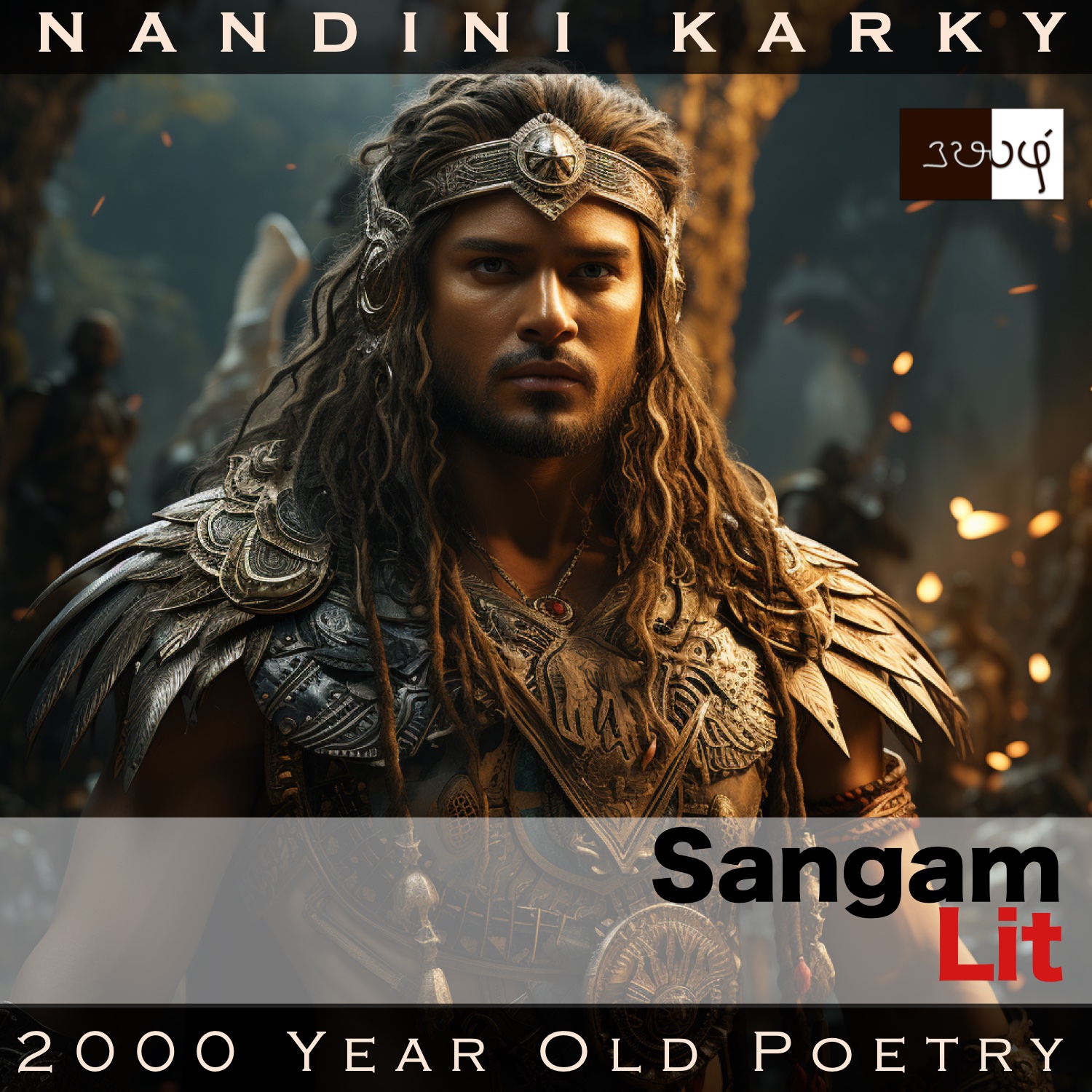Podcast: Play in new window | Download
Subscribe: Apple Podcasts | Spotify | Amazon Music | Android | iHeartRadio | TuneIn | RSS | More
In this episode, we learn of the generosity of a king, as portrayed in Sangam Literary work, Puranaanooru 179, penned about the Velir King Naalai Kizhavan Naakan by the poet Vadanedunthathanaar. The verse is situated in the category of ‘Vaagai Thinai’ or ‘Victory’ and talks about the name and fame of this ruler.

‘ஞாலம் மீமிசை வள்ளியோர் மாய்ந்தென,
ஏலாது கவிழ்ந்த என் இரவல் மண்டை
மலர்ப்போர் யார்?’ என வினவலின், மலைந்தோர்
விசி பிணி முரசமொடு மண் பல தந்த
திரு வீழ் நுண் பூண் பாண்டியன் மறவன்,
படை வேண்டுவழி வாள் உதவியும்,
வினை வேண்டுவழி அறிவு உதவியும்,
வேண்டுப வேண்டுப வேந்தன் தேஎத்து
அசை நுகம் படாஅ ஆண்தகை உள்ளத்து,
தோலா நல் இசை நாலை கிழவன்,
பருந்து பசி தீர்க்கும் நற் போர்த்
திருந்து வேல் நாகன் கூறினர் பலரே.
A verse that has the structured format of a question put forth and an answer received. The poet’s words can be translated as follows:
“When I asked, ‘As those who were generous in this world have perished, who is there to fill my begging bowl, now turned upside down with no one to give?’, in response, ‘A warrior under the Pandya King renowned for conquering well-tied drums of enemies and their lands plenty and the one wearing intricate and divine ornaments’; This warrior king is one who offers swords when military aid is sought and offers his knowledge when advice to complete tasks is sought; Whatever it may be that the Pandya king wants, akin to a swaying yoke that never shifts to one side, with a heart of manliness, the lord of the town Naalai with unceasing fame renders unto the king; He is one who ends the hunger of vultures, the bearer of piercing spears in the battlefront; The one who is called Naakan’, came the reply from many!”
Let’s explore the details herein. The poet explains how he was wondering aloud about who in the world would alleviate his poverty and fill his bowl, now that the great patrons of the known world were gone. Instead of saying anything further about that question, he goes on to about a chieftain named ‘Naakan’. To reveal his nature, the focus turns to the one this chieftain worked for, a great Pandya king, renowned for victories over enemies and for seizing their battle drums, the one who wore such radiant ornaments. The reason for that Pandya king’s victories is apparently this Velir king, who offered much military assistance, be it in the form of weapons and swords or words and strategy, and stood firmly supporting that Pandya king. He was the ruler of the famous town of Naalai, and is described as one who wields a well-etched spear and ends the hunger of vultures, and by that, the poet means to highlight the ruthlessness of this ruler in ending his enemies on the battlefield. The poet concludes with the words that in response to his initial question, the name ‘Naakan’ was what was given by many, many people he met.
Highlighting how the fame of this king had spread all over the land so much that the first name that came to people’s minds when pondering on the question of generosity was this king, the poet puts forth a supplication to this king to end his poverty. Through songs like this, we understand that it’s not only the emperors and great kings who enjoyed renown in the ancient world but even chieftains and leaders of minor domains. No matter your rank or position, your good deeds have the power to fly far and wide, seems to be the subtle message in this verse from the past!




Share your thoughts...